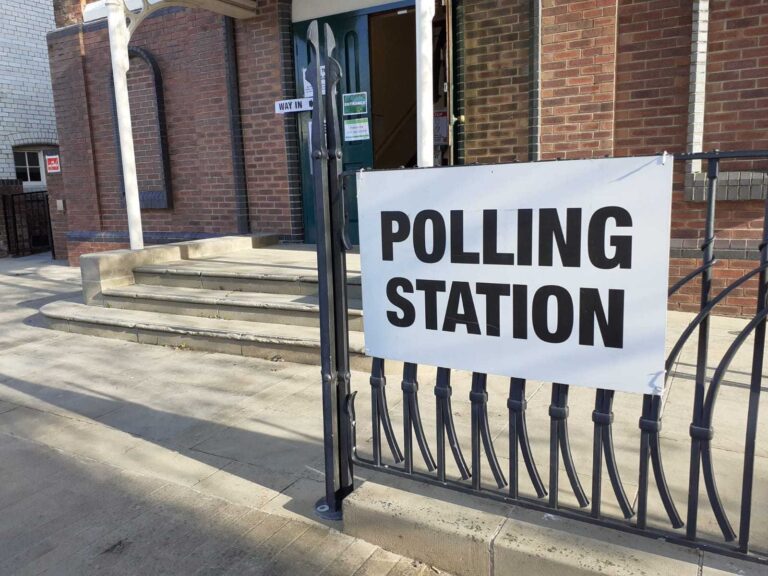Derbyshire County Council’s May elections are set to go ahead after the authority has missed out on the first raft of regions to be potentially turned into unitary super councils.
The Labour Government’s Local Government Reorganisation plans include potentially setting up single, unitary authorities with elected mayors in county areas and the merging of councils in two-tier authority areas like Derbyshire that operate county, and then district and borough councils.
Conservative-controlled Derbyshire County Council had submitted to Government a request to be included in the first wave of councils to be part of the reorganisation of two-tier council structures with the potential postponement of any May elections.
However, the county council has not been named on the Government’s shortlist of prioritised regional councils so the county council elections on May 1 will go ahead as scheduled.
Despite County Council Leader Barry Lewis’s disappointment that Derbyshire was not included in the first wave of councils to reorganise their two-tier structures, he remained excited about the eventual reorganisation possibilities for the county which he claims could save residents in excess of over £100m over the first five years.
Cllr Lewis said: “Although the process is far from ideal, happening within the election period, and could be a distraction from the issues that matter to residents, we will work to ensure the best result for Derbyshire residents.”
He has stressed the council’s ambitions remain ‘undimmed’ and that the authority will continue to push for a new whole county authority excluding the city while delivering the best value for residents.
Deputy Prime Minister and Local Government Secretary, Angela Rayner, confirmed Derbyshire is not among nine authorities which would be allowed to postpone elections for a year as part of the initial LGR plans.
Elections will however be delayed in East and West Sussex, Essex and Thurrock, Hampshire and the Isle of Wight, Norfolk, Suffolk and Surrey, as part of the first roll-out of LGR plans but another 24 authorities, including Derbyshire County Council, will be going to the polls as originally scheduled.
Ms Rayner ha said she is still determined to meet the Government’s bid for unitary councils to be implemented right across England.
Derbyshire County Council will now be among the remaining two-tier areas responding to legal invitations with instructions requesting them to submit their proposals regarding the move towards setting up new unitary authorities.
Despite the county council missing out on the first wave of plans, it has already submitted to the Government its intentions to be part of the reorganisation aimed at improving efficiency, reducing duplication and driving down costs.
Subject to Derbyshire County Council approving a report next week at a Full Council meeting, the council says it will work with other district and borough councils to formally submit its interim plans to Government in March with a view to submitting a full proposal in November.
Cllr Lewis, has stated the county council is ready to work with Derby City Council and the county’s district and borough councils to shape proposals as long as Government plans align with what is best for Derbyshire and create savings.
The council’s Deputy Leader, Cllr Simon Spencer, has also said the council’s wish is to keep Derbyshire’s geographical boundaries and its preferred option would also include retaining the city boundaries with one unitary council to cover the county which would leave Derby City Council unaffected.
He added that the county council recognises there is an opportunity to save up to £3bn with Local Government reform and there is a willingness to work with the Government.
The Government has argued the plans will mean elected mayors will have more powers on planning and transport, and that the changes will create savings, create greater efficiency, improve public services, and support economic growth.
But critics have said the plans could mean: The loss of district and borough councils; A risk of greater Government control over local area decision-making and the removal of local decision-making; Feared tax rises; Powers being taken away from communities with reduced local representation; And that there is little evidence such plans can create savings.
The county’s district and borough councillors have expressed concerns as the Conservative-controlled county council has put its hat in the ring and they have jointly requested more time to consider all the implications particularly concerning any impact on public services, jobs, and council members.
Derbyshire currently has eight ‘lower tier’ district or borough councils and one ‘upper tier’ county council, each with their own elected councillors.
The Government also expects Derby City Council to be involved in discussions.
Cllr Lewis added: “Across the nine Derbyshire councils, there are 400 councillors, nine chief executives, several costly headquarter buildings, and many cohorts of senior management and much duplication.
“Reorganisation will benefit residents by massively improving efficiency in Local Government and driving down costs by streamlining how we deliver services, as well as leading to greater opportunity for growth and prosperity.
“As a county, we’ve already shown our commitment to making effective change by successfully creating the first Mayoral Combined County Authority and this will open up new opportunities by strengthening our current devolution deal.
“Although we’re disappointed to not be in the first wave, this is still an enormous opportunity for Derbyshire and we’re excited about the possibilities and the potential for savings and streamlined services it presents.”
He previously stated the Government’s LGR plan is the biggest reform of Local Government in over 50 years and the county council must seize the opportunity on behalf of all its residents to improve efficiency and drive down costs.
Cllr Lewis has also said he firmly believes further reorganisation would open up new opportunities by strengthening the current East Midlands Combined County Authority devolution deal by widening public sector reform and streamlining how services are delivered with greater opportunity for growth and prosperity.
Derbyshire County Council Labour Group Leader, Cllr Joan Dixon, praised the Government’s decision not to delay the county’s elections as “the better and more democratic option”.






